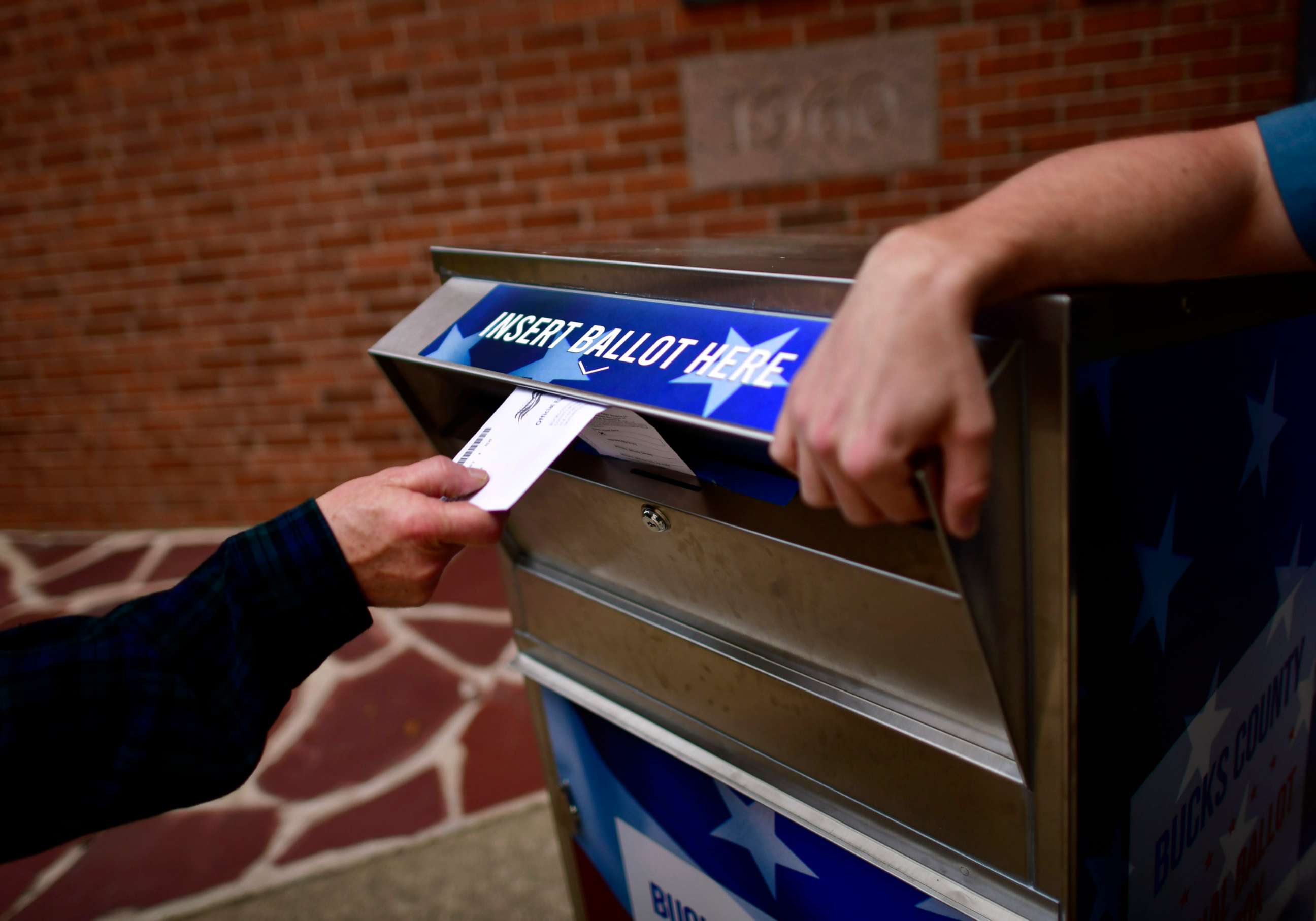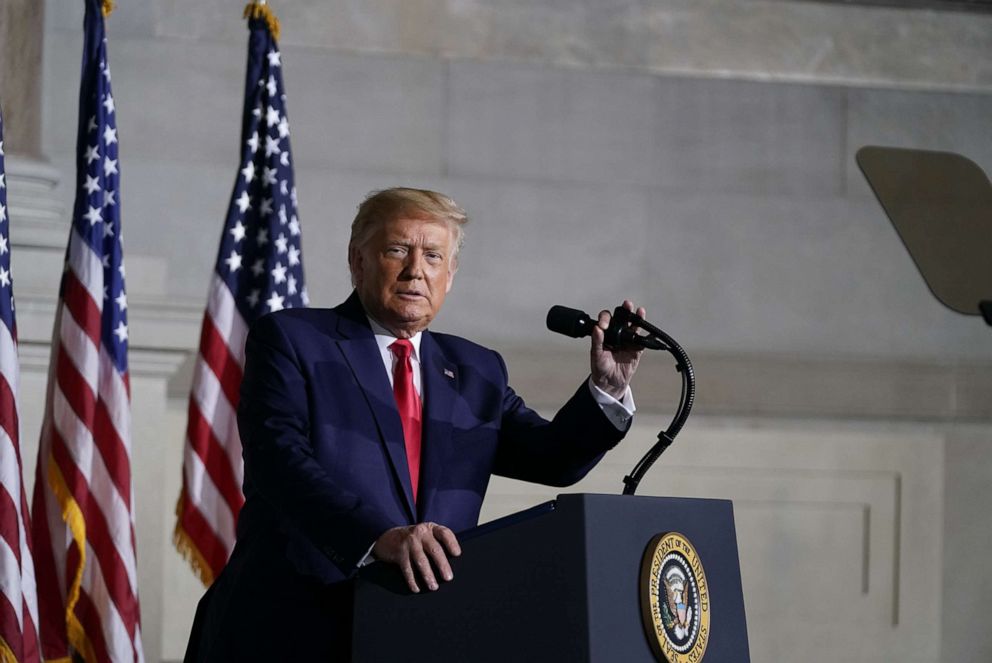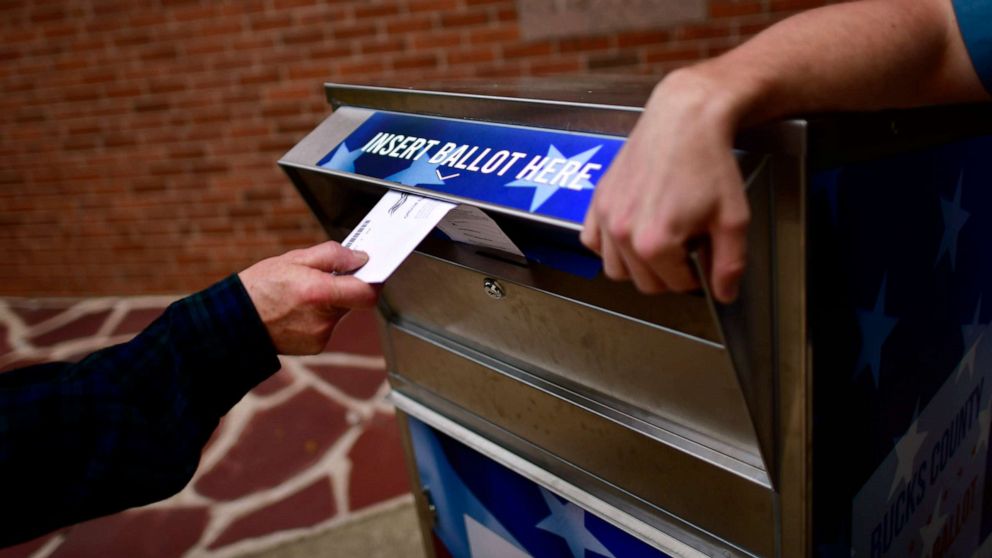Democrats land legal wins on mail ballot deadline, drop box use in Pennsylvania
The Pennsylvania Supreme Court on Thursday delivered three key wins for state Democrats' push to expand voting access, including extending the deadline by three days that mail-in ballots need to be received in order to be counted -- a move that will potentially lead to thousands more ballots being counted in a state where in 2016, only 44,292 votes decided the outcome of the presidential election.
Not only will mailed ballots that are postmarked on or before 8 p.m. on Election Day and received by 5 p.m. the Friday after it be counted, but any ballots that arrive within that time frame without a postmark, or with an unreadable postmark, will be presumed to have been sent before the cutoff point, unless evidence indicates otherwise.
The extension also makes it more likely that the outcome of the election won't be known for days -- potentially weeks -- after Nov. 3. In Pennsylvania, county election officials can't start processing mail in ballots at all until the polls open on Election Day."
Thanks to legislation enacted in November 2019, any Pennsylvania voter could opt to vote by mail this year, even before the coronavirus pandemic hit the United States, upending daily life -- and elections -- across the country. But state and local election officials couldn't have anticipated just how much that infrastructure would need to be scaled up for the 2020 election cycle. There was a 17-fold increase in applications to vote by mail for the June primary, and Gov. Tom Wolf ended up extending the mail-in ballot deadline for six counties, including Philadelphia and its suburbs, by one week the night before that election, citing the sheer volume of applications they received coupled with the civil unrest that was unfolding during that time.

In mid-August, the U.S. Postal Service sent letters to 45 states, warning that some of their respective deadlines around mail-in ballots "are incongruous with the Postal Service's delivery standards," underscoring what local election officials in the Keystone State had already believed -- that the one-week turnaround time from when applications are due and when ballots are due, normally by 8 p.m. on election night, would be unworkable even in a non-pandemic year.
"That's a joke, that's not ever going to happen ... I wouldn't put that particular issue on the Post Office whatsoever," Lee Soltysiak, chief clerk for Montgomery County, told ABC News back in May, explaining how even if a voter applied online at the deadline, the time it takes for an office to process that application, approve it, put the ballot in the mail and have the voter fill it out and mail it back, it would likely be late.
"There's a weekend involved. There's a Sunday involved. It's not getting back to a voter services office by 8 p.m. on Tuesday," he said.
Besides changing the deadlines, the only real relief voters -- and county election officials can have, is a means to avoid having to return the ballot by mail: Enter secure ballot drop boxes.
The Trump campaign and Republican National Committee sued to prevent them from being used in Pennsylvania, arguing the way counties moved to implement them, by bypassing the state legislature, was unconstitutional.
The state Supreme Court's decision Thursday on this issue delivered a blow to the Republican effort, which was put on hold by a federal judge to allow state courts the opportunity to weigh in on the matters involved.
"We need not belabor our ultimate conclusion that the Election Code should be interpreted to allow county boards of election to accept hand-delivered mail-in ballots at locations other than their office addresses including drop-boxes," Thursday's ruling read.

In another loss for the Trump campaign, the state Supreme Court ruled that Pennsylvania's requirement that poll watchers can only observe in the counties in which they are registered to vote is constitutional, citing the fact that elections are county-run. Republicans were pushing to allow voters statewide to monitor election sites, regardless of what county they lived in.
"Given that Pennsylvania's General Assembly chose a county-based scheme for conducting elections, it is reasonable that the Legislature would require poll watchers, who serve within the various counties of the state, to be residents of the counties in which they serve," the ruling stated. "Thus, there is a clear rational basis for the county poll watcher residency requirement, and we determine, therefore, that this requirement should be upheld."
In another lawsuit, the state Supreme Court ruled that the Green Party presidential ticket will not be on the ballot, paving the way for ballots to start being printed and distributed to voters after being put on hold while the legal battle played out. In 2016, Green Party candidate Jill Stein won more votes in Pennsylvania than the margin separating President Donald Trump and Democrat Hillary Clinton. While it's impossible to know whom every one of those voters would have cast ballots for -- if anyone -- had Stein not been on the ballot, the Green Party's platform is more in line with Democrats' than Republicans'.
However, it wasn't all wins for Democrats on Thursday.
In the state Democratic Party's lawsuit, the state Supreme Court ruled that mail ballots not properly returning in the secrecy envelope "must be disqualified," concluding "that the Legislature intended for the secrecy envelope provision to be mandatory."
Additionally, in a separate ruling, the court decided that third parties delivering ballots on behalf of voters is forbidden under state law.
Trump cheered that ruling on Twitter.




